#SRaviBseChairman
Text
S Ravi, Former BSE Chairman-“Pattern Of Investment In International Mutual Fund Is Different From That Of Investments In Domestic Mutual Funds”
Sethurathnam Ravi, popularly known as S Ravi is the former chairman of Bombay Stock Exchange Limited (BSE). Currently he is the Founder and Managing Partner of Ravi Rajan & Co., an advisory and accountancy firm, headquartered in New Delhi, India. He is also an Associate Member of Association of Certified Fraud Examiners (CFE), USA, and also a registered Insolvency Resolution Professional. Sethurathnam Ravi in his latest article explains the challenges faced when investing in overseas mutual funds.
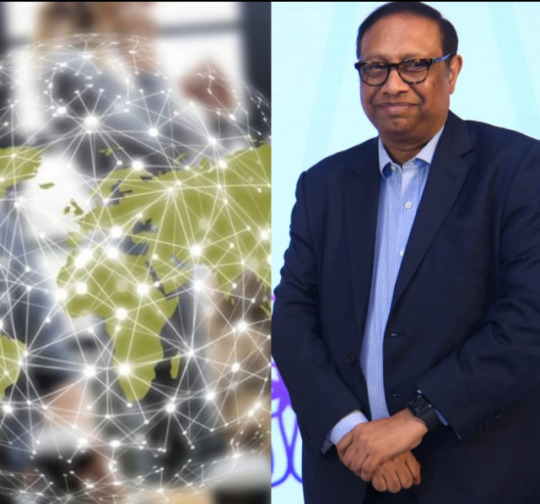
According to the Sethurathnam Ravi BSE ,the investment can be made in Indian Rupees and redemption is in Indian rupees. Investing in overseas Mutual Fund which is non-domestic has its own challenges in terms of methodology of payment, foreign exchange fluctuation and taxation, he explains. “The most preferred investment vehicle is through domestic fund houses as data and performance is readily available. Investors who have strong domestic presence the most efficient mechanism is to invest through domestic fund houses who in turn invest through various schemes in foreign stocks”, S Ravi said.
Sethurathnam Ravi also explains about the pattern of investment in overseas mutual funds. As per his affirmation the pattern of investment in international mutual fund is different from that of investments in domestic mutual funds. There are many things that need to be taken care of while investing in international mutual funds. S Ravi also explains about the term of investments that are suitable for investing in overseas mutual funds unlike domestic funds.
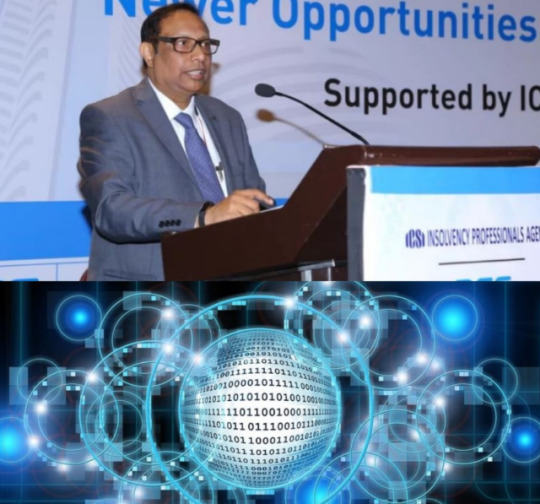
“An aspect which needs to be factored in this is that it is always better to invest medium or long-term perspective as one foreign stock give a good return over a period of time. Short-term investment in international mutual funds have witnessed volatility and thus should be avoided. Non-resident Indians have the liberty of investment from the country of residency. International mutual funds have delivered return of 27% in the last year. The three-year return is around 12% and the five-year return is approximately 13%”, Mr. Ravi, Former BSE Chairman affirms.
Investors still have the option to choose country specific investment through domestic fund house. There are specific schemes for investments predominantly in the US based stocks. Today the investor is equipped with data wherein fund performance is available along with NAV and returns, Sethurathnam Ravi concluded.
Also Watch:
youtube
#SethurathnamRavi#SethurathnamRaviBSE#SRaviBSE#SRavi#SRaviBSEFmrChairman#SRaviBSEChairman#SethurathnamRaviFmrBSEChairman#Youtube
1 note
·
View note
Text
S Ravi, Former BSE Chairman Advices The Stock Market Investors“New Investors Should Be Patient During Tough Times”
At a time when the Covid-19 pandemic and consequent lockdowns affected the economy, the stock market was one of the very few areas where the wheels were still turning. This attracted many new investors, and a record number of new Demat accounts were opened. During then pandemic, the Indian stock market witnessed lakhs of new investors form the Tier-2 and Tier-3 cities. However, this enthusiasm seems to have waned as returns from the market have flattened in recent months. From a high of 20 lakh new investors in October 2021, it has dropped to 13 lakhs in April 2022.
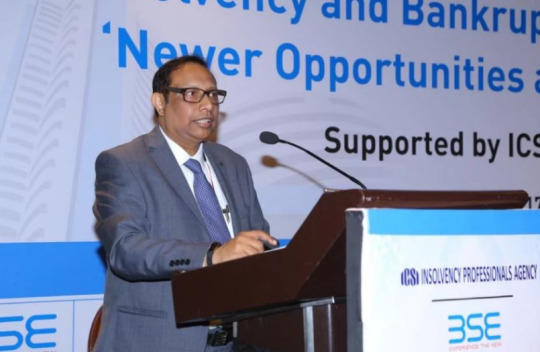
According to the former BSE Chairman Sethurathnam Ravi, foreign portfolio investments or FPIs became net sellers for eight out of 12 months in 2021–22 with a net outflow of Rs. 1.3 lakh crore, against a net inflow of Rs. 2.8 lakh crore in the previous year. Mutual funds, on the other hand, made heavy investments worth Rs. 1.7 lakh crore in the Indian equity market in 2021–22, according to the Reserve Bank of India.
There was a massive rise in the number of new Demat accounts. A total of 50 lakh Demat accounts were opened in 2019–20 and 1.42 crore in 2020–21. This shot up to 3.46 crore new Demat accounts in the year 2021–22. This means that on average, 28.8 lakh Demat accounts were opened every month during 2021–22, which was higher than 11.8 lakh accounts per month in the previous year and 4.2 lakh Demat accounts per month in 2019–20.
Due to this, the Indian stock market future remained dark with the pandemic looming over us. The global supply chain was crippled. Yet, S Ravi acknowledges that India’s stock market was one of the few areas that remained more stable than other markets. Finance Minister Nirmala Sitharaman said that retail investors seemed to act as shock absorbers even when foreign portfolio investors went away.
Experts including S Ravi BSE Chairman suggests that ups and downs in the stock market are a usual phenomenon and that new investors should be patient during tough times. For many new investors, the market trend during the 2008 American subprime mortgage crisis is too old to be considered. He said to India Today the other day that, “If the retail investors have used prudence and have invested in good stocks with strong fundamentals, they should not worry”. As a word of caution, Ravi added that retail investors should diversify their portfolios and should not take loans to invest in equity.
#SethurathnamRavi#SethurathnamRaviBSE#SRaviBSE#SRavi#SRaviBSEFmrChairman#SRaviBSEChairman#SethurathnamRaviFmrBSEChairman
0 notes
Text
Sethurathnam Ravi, Former BSE Chairman Advices Retail Investors To Diversify Their Portfolios
At a time when the Covid-19 pandemic and consequent lockdowns affected the economy, the stock market was one of the very few areas where the wheels were still turning. This attracted many new investors, and a record number of new Demat accounts were opened. During then pandemic, the Indian stock market witnessed lakhs of new investors form the Tier-2 and Tier-3 cities. However, this enthusiasm seems to have waned as returns from the market have flattened in recent months. From a high of 20 lakh new investors in October 2021, it has dropped to 13 lakhs in April 2022.
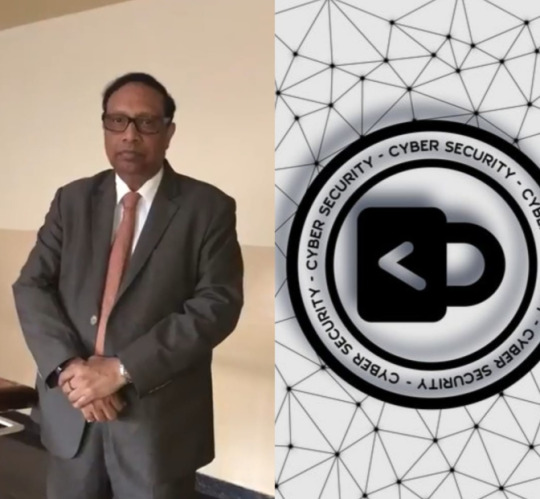
According to the former BSE Chairman Sethurathnam Ravi, foreign portfolio investments or FPIs became net sellers for eight out of 12 months in 2021–22 with a net outflow of Rs. 1.3 lakh crore, against a net inflow of Rs. 2.8 lakh crore in the previous year. Mutual funds, on the other hand, made heavy investments worth Rs. 1.7 lakh crore in the Indian equity market in 2021–22, according to the Reserve Bank of India.
There was a massive rise in the number of new Demat accounts. A total of 50 lakh Demat accounts were opened in 2019–20 and 1.42 crore in 2020–21. This shot up to 3.46 crore new Demat accounts in the year 2021–22. This means that on average, 28.8 lakh Demat accounts were opened every month during 2021–22, which was higher than 11.8 lakh accounts per month in the previous year and 4.2 lakh Demat accounts per month in 2019–20.
Due to this, the Indian stock market future remained dark with the pandemic looming over us. The global supply chain was crippled. Yet, S Ravi acknowledges that India’s stock market was one of the few areas that remained more stable than other markets. Finance Minister Nirmala Sitharaman said that retail investors seemed to act as shock absorbers even when foreign portfolio investors went away.
Experts including S Ravi BSE Chairman suggests that ups and downs in the stock market are a usual phenomenon and that new investors should be patient during tough times. For many new investors, the market trend during the 2008 American subprime mortgage crisis is too old to be considered. He said to India Today the other day that, “If the retail investors have used prudence and have invested in good stocks with strong fundamentals, they should not worry”. As a word of caution, Ravi added that retail investors should diversify their portfolios and should not take loans to invest in equity.
#SethurathnamRavi#SethurathnamRaviBSE#SRaviBSE#SRavi#SRaviBSEFmrChairman#SRaviBSEChairman#SethurathnamRaviFmrBSEChairman
0 notes
Text
Sethurathnam Ravi BSE Fmr Chairman, a Platform should be created where data sharing can happen, an open-source data platform
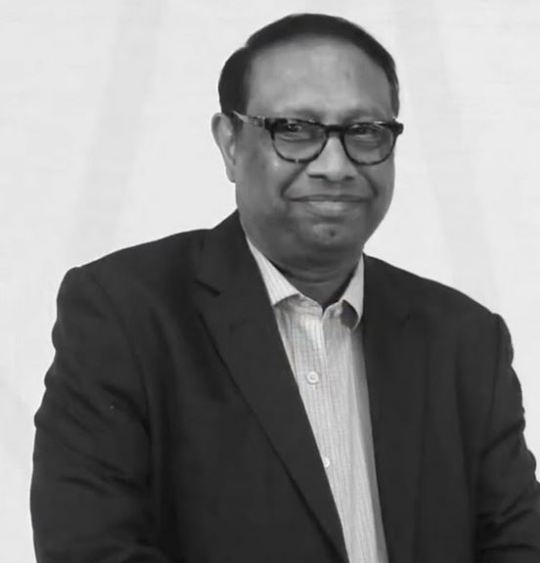
Sethurathnam Ravi BSE(S Ravi) is the former Chairman of Bombay Stock Exchange Limited (BSE) and Founder and Managing Partner of Chartered Accountants’ firm Ravi Rajan & Co., an advisory and accountancy firm, headquartered in New Delhi, India. S Ravi is a Post Graduate in Commerce and holds a diploma in Information System Audit (DISA). Mr. Ravi gives his suggestions on how to make GST friendly, for most of the people to abide by the tax paying mechanisms.
Sethurathnam Ravi BSE (S Ravi) is the former Chairman of Bombay Stock Exchange Limited (BSE) and Founder and Managing Partner of Chartered Accountants’ firm Ravi Rajan & Co., an advisory and accountancy firm, headquartered in New Delhi, India. S Ravi is a Post Graduate in Commerce and holds a diploma in Information System Audit (DISA). He is an Associate Member of Association of Certified Fraud Examiners (CFE), USA and is also registered as an Insolvency Resolution Professional.
Sethurathnam Ravi BSE on his latest talk on 5 years of GST with Tarun Nangia, presents his views on the journey of GST in India since its introduction 5 years ago. According to him, the Goods and Services Tax has been a major reform across India and so far, it has been a successful journey. He also makes four suggestions on how to make GST friendly, for most of the people to abide by the tax paying mechanisms.
“First of all, on the platform side, what happens is one person makes a wrong entry and there needs to be a corrective step which takes time. So for that, there should be empowerment which will happen slowly at the assessing person’s level, through the online system where we can produce documents to make the correction. That is one thing which will go a long way in sort of practically helping the cause because the rectification itself is a process”, Mr. Ravi explains.
The second point he details is that, when looking at the compensation sess, we can find that it is something to be done with. He also says that it was of course addressed by the last GST council. “But I think it has to be done with, because compensation sess is one thing that we do away as there are no freebies as far as this is concerned” Mr. Ravi said.
“The third thing that I would strongly feel is for the smaller SME and MSME segment”, he says. According to Sethurathnam Ravi BSE, a platform should be created where data sharing can happen, an open-source data platform between the banks, the SMEs, the MSMEs and the GST collection. So that in a harmonious manner, the bankers can review the collection, the credit record, turnover record, services record etc. “So, I think that is very important from the long-term perspective”, Mr. Ravi added. The fourth suggestion he made to make the tax mechanisms easier was the rationalization of rates.
#SethurathnamRaviBSE#SethurathnamRavi#SethurathnamRaviFmrBSEChairman#SRaviBSE#SRavi#SRaviBSEFmrChairman#SRaviBSEChairman
0 notes
Text
Sethurathnam Ravi Suggests that a Platform should be Created Where Data Sharing can Happen
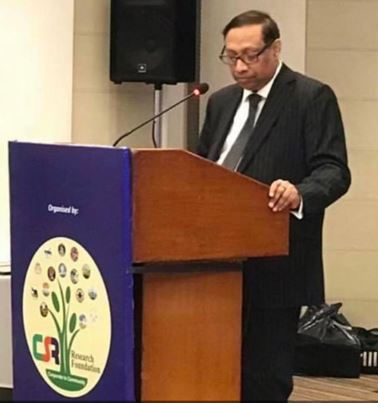
Sethurathnam Ravi, popularly known as S Ravi is the former chairman of Bombay Stock Exchange Limited (BSE). Currently he is the Founder and Managing Partner of Ravi Rajan & Co., an advisory and accountancy firm, headquartered in New Delhi, India. He is also an Associate Member of Association of Certified Fraud Examiners (CFE), USA, and also a registered Insolvency Resolution Professional.
Sethurathnam Ravi, popularly known as S Ravi is the former chairman of Bombay Stock Exchange Limited (BSE). Currently he is the Founder and Managing Partner of Ravi Rajan & Co., an advisory and accountancy firm, headquartered in New Delhi, India.
When the Finance Minister of India Nirmala Sitharaman was all set to present the Union Budget on February 1, for the financial year 2022-23, rebate in taxation, simplifying investment and offering of further incentives to the Indian start-ups and MSMEs were the expectations from the same. After the presentation of the budget, Sethurathnam Ravi, the financial expert shares his views on the present taxation rates, the GST and how it affects the SMEs and the MSMEs.
Sethurathnam Ravi (S Ravi) Founder and Managing Partner, Chartered Accountants’ firm Ravi Rajan & Co. said, “Expectation on rationalization of GST is there so that there is relief to small producers specifically within the food and Pharma sectors. I believe that there will be larger focus on few industries like semiconductors, lithium batteries, infrastructure for renewable energy and Electric Vehicles and special boost to Green Energy therefore we can expect major measures in this direction.”
After the presentation of the Union Budget 2022, Sethurathnam Ravi BSE expects that there will be some relief for the SME and MSME space with over 40 percent workforce engaged in the latter. In the last few years, we have seen, despite a strong covid outburst, a very strong recovery in terms of collection in the form of GST. According to Mr. Sethurathnam Ravi it has been a very progressive journey. It was full of challenges of acceptability. But now it has been accepted. The financial expert says that what is more important is how we address to the lower category of people, i.e., the MSME and the SME’s who have to bring in more awareness and to make the cost of compliance lesser.
Sethurathnam Ravi also suggests that a platform should be created where data sharing can happen, an open-source data platform between the banks, the SMEs, the MSMEs and the GST collection. With this possible, the bankers can review the collection, the credit record, turnover record, services record etc, in a harmonious way. Mr Ravi concluded by saying that this is very important from the long-term perspective.
#SethurathnamRavi#SethurathnamRaviBSE#SethurathnamRaviFmrBSEChairman#SRaviBSE#SRavi#SRaviBSEFmrChairman#SRaviBSEChairman
1 note
·
View note
Text
S Ravi BSE, Russia-Ukraine war Indian bank NPAs can rise
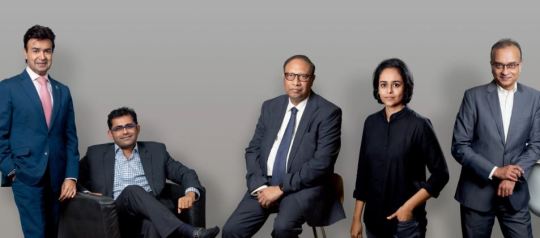
Banks will have to assess the sectoral exposure to evaluate the financial impact of the war, S Ravi BSE describes, especially on MSMEs which do not have the cushion to absorb the additional costs like large corporations.
Indian banks could witness a higher level of non-performing assets (NPAs) as a chain effect of various sectors being affected by the Russia-Ukraine crisis, especially the MSME sector which is still recovering from the brutal impact of the pandemic, S Ravi, Former Chairman of BSE and Founder & Managing Partner, Ravi Rajan & Co, told ETBFSI.
“The banks would have to carry through the sectoral sensitivity of these various sectors, to evaluate the financial impact of the war. Interest rates,however, are not likely to go up as banks would not like to take such steps until they get a complete overview of the impact,” he said.
The induced shortages, increased commodity prices and disruption in logistics in the region from a prolonged war will adversely impact the MISME sector, said Aruna Pannala, Partner, Deloitte India, while also highlighting that the advances to MSME have already declined as of September 2021 compared to March 2021, as per the RBI’s Financial Stability Report.
” The expected liquidity outflow due to the war will therefore impact the credit flow to the sector. The possibility of a wave of new variants of coronavirus also threatens the growth prospects. In this scenario, MSMEs are vulnerable, particularly those operating at less than full capacity. We expect that the NPAs can increase by 2-3 percentage points over the next 6 – 9 months, ” she said.
Interest rates and input costs:
Shivam Bajaj, Founder & CEO at Avener Capital is also of the opinion that the prolonged conflict between Russia and Ukraine would put pressure on interest rates and input costs and hit bottom-line of businesses.
Shortage of food, wheat particularly, increase in the price of oil will trigger inflation in various economies around the world. For the export-oriented MISME, there may be delays in delivery of orders and collections, while the import oriented MISMEs will have their supply chain disrupted, thereby negatively affecting cashflows.
“Large corporations have the cushion to absorb the additional costs without passing it to the customers for a longer period. However, MSMEs being price takers do not have the ability to dictate prices and may be compelled to absorb the additional costs which put an adverse strain on their profitability and balance sheet ” he said.
Uneven sectoral recovery:
Indian banks may face some headwinds from the crisis, which could lead to higher inflation and some stress for borrowers, however, the situation is still evolving and is being closely monitored, said Deepali Seth Chhabria, Analyst at’S&P Global Ratings.
‘There are some pockets of stress that we see in retail and the small and
medium enterprises sectors given that the recovery so far has been uneven, but with a further pick up in the economy the residual stress should start abating,” she told Reuters.
Marginal impact on banks:
Krishnan Sitaraman, senior director and deputy chief ratings officer, CRISIL Ratings told ETBFSI last week that Indian banks’ direct exposure to Russia and Ukraine is limited and the direct impact from the conflict is likely to be marginal.
Banks will also get 10 days to complete the processing of payments already in the sustem to avoid near-term problems for businesses and trade.
There will be no immediate impact of the Russia-Ukraine crisis on Indian
banks since according to him the exposure of the banks is not as much, and their strong balance sheets will be able to withstand the situation.
2 notes
·
View notes
Text
Chartered Accountant to The Chairman of BSE, Life of S Ravi Keeps Souring to Heights.
Sethurathnam Ravi (S Ravi BSE) founded Ravi Rajan & Co. Presently, Mr. Ravi holds the position of Non-Executive Chairman of Tourism Finance Corp. of India Ltd. and Director & Managing Partner at RRCA & Associates. Mr. Ravi is also Associate Member at Association of Certified Fraud Examiners, Member of The Institute of Chartered Accountants of India, Director & Managing Partner at Ravi Rajan & Co. and Member-MOU Department at India Department of Public Enterprises and on the board of 15 other companies. In his past career he held the position of Chairman for BSE Ltd. and Union Finance & Revenue Secretary at India Ministry of Finance. Mr. Ravi received a graduate degree from Rani.
Sethurathnam Ravi, famously known as S Ravi is a chartered accountant who is based in India. Additionally, he is also the managing partner as well as a promoter of Ravi Rajan & Co. Besides this, S Ravi is also known as the former chairman of BSE or Bombay Stock Exchange.
In terms of education, S Ravi has achieved both his bachelor’s and master’s degrees in the field of commerce at Durgavati University which is situated in Madhya Pradesh. Thus, he is a well-qualified man of knowledge with extreme experience in the financial and management fields.
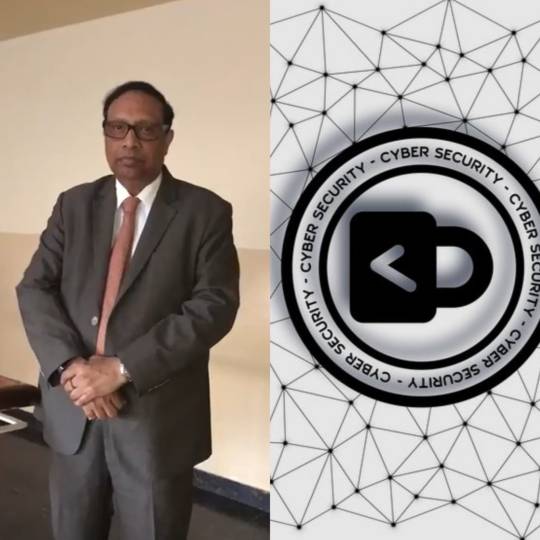
Achievements
Speaking of achievements, S Ravi BSE has served as an Independent Director of the Tourism Finance Corporation of India. By 2019, he was one of the Board Directors of SBI Payment Services Pvt. Ltd. Prior to joining BSE, he served on the boards of several companies, including SBI-SG Global Securities, UTI Company Limited, SMERA Ratings, BOI Merchant Bankers and STCI Finance. He is also a member of SEBI's takeover panel with ICAI or the Institute of Chartered Accountants of India.
S Ravi was the former BSE chairman from November 2017 to February 2019 affirmatively. He was appointed chairman of the BSE based on his knowledge and experience in gaining several positions on various boards of banks, along with asset management companies and financial institutions in the respective financial sectors. He is currently the Founder and Managing Partner of Ravi Rajan & Company, a consultancy and accountancy firm based in Delhi, India.
This BSE Chairman proudly holds his DISA or Diploma in Information Systems Audit. In addition, he is a competent and respected member of the CFE or the Association of Certified Fraud Examiners, along with a registered bankruptcy resolution professional. Similarly, as a BSE Chairman, he has a role to play in companies related to financial and asset management in the financial sector. Therefore, during his tenure as BSE Chairman, S Ravi did his best for the overall progress.
S Ravi's tenure spans over three decades, with extensive experience in banking, finance, management, financial consulting, appraisal, mergers, acquisitions, auditing and rehabilitation of correspondent companies and intermediate banks. And the reorganization of companies that pursue diversionary strategies.
Thus, S Ravi has often served as the Speaker of the Correspondence Regular Bodies RBI, SEBI and ICAI from time to time. Mr. Ravi firmly believes that women should be given the same rights as men and should be helped to resolve issues related to this issue. In addition, he is passionate about other burning topics such as sports, education, and global climate change.
Former BSE Chairman Sethurathnam Ravi strongly believes that all potential investors should be vigilant in the face of any impending crisis. Care must be taken when making an informed decision. In addition, the BSE Chairman emphasized on the issue that he has a firm vision to get BSE a 22-hour trading format. Historically, it has been observed that some investors somehow overreact to positive developments.
2 notes
·
View notes
Text
Startup Needs to take Leverage from Themselves Says S Ravi Bse
Mr. Sethurathnam Ravi (S Ravi Bse) is the former Chairman of Bombay Stock Exchange Limited (BSE) and Founder and Managing Partner of Chartered Accountants’ firm Ravi Rajan & Co., an advisory and accountancy firm, headquartered in New Delhi, India. . S Ravi on encouraging Emerging & Small Businesses and how they can leverage themselves rightly in the current environment.
Sethurathnam Ravi, a chartered accountant by profession, was the former chairman of BSE. He had been and is still continuing to be in board of many prestigious institutions. He shed his light in the current economic environment about his thoughts and how can a young entrepreneur establish his footsteps.
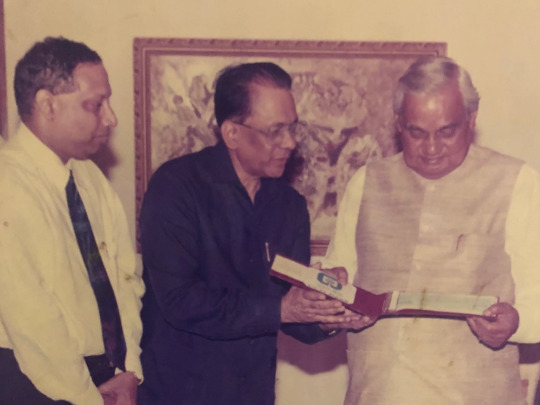
According to S Ravi, be it a startup or an enterprise of the future, how can they leverage themselves rightly in the current environment where everyone is predicting a super growth for India over the next 5 to 10 years. what are the regulatory issues they need to deal with, how can to navigate them, how to look after compliance because compliance is taking up their time money and effort and mind space, and most importantly the two issues that one can throw light on placing capital is that you know it’s raining IPOs both in the primary and secondary markets.
S Ravi, the former BSE chairman feels that money is abundantly available and second, is the fact that becoming the technology play, you need to be a technology company whatever business you’re.
Mr. Ravi, with the background experience in advising entrepreneurs companies and even part of the policy Making in the country would like to make a quick remarks on background of why the next few years are the best years for emerging companies grow and leveraged business environment that exists in India.
The first and foremost factor that is there is the transformation that is from traditional business to the non traditional business or to the new age business, says the Ex chairman of BSE. So, this transformation has been happening for the last ten years but it has accelerated over the last five to seven years. And one has seen lot of growth of fintech companies, new banks, seen lot of service providers, there are also a lot of critics type of company companies, and the companies which have that successes behind like paytm. But there should be new companies which are very robust and are coming up in all fields, let it be financial services, manufacturing, robotics or artificially intelligence. So what worries everybody in this space of the emerging companies and startup is compliance. For them, the cost of compliance can come down drastically if artificial intelligence and uniform platforms are created for them.
So that is why, S Ravi Bse recommends both the technology with the small emerging companies whether it be any manufacturing, aerospace etc. They can take anything so it has red deed and the cost of compliance will be automated and that is what I think is going to be the next level that the country going to witness. The growth is going to be there because of this and technology has played a very predominant part in it. Manufacturing company with core strength that has to coincide with technology companies to have a robust future says the former BSE chairman.
2 notes
·
View notes
Text
Sethurathnam Ravi realized that a company should have good advisors who can work hand in hand throughout the process
Sethurathnam Ravi (S Ravi) is the former Chairman of Bombay Stock Exchange Limited (BSE) (November 2017 to February 2019) and Founder and Managing Partner of Chartered Accountants’ firm Ravi Rajan & Co., an advisory and accountancy firm, headquartered in New Delhi, India. Mr. S Ravi is a Post Graduate in Commerce and holds a diploma in Information System Audit (DISA). He is an Associate Member of Association of Certified Fraud Examiners (CFE), USA and is also registered as an Insolvency Resolution Professional. S Ravi talks about the value of a mentor in startups.
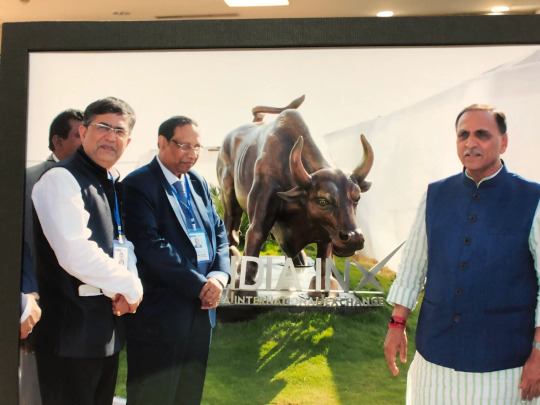
Sethurathnam Ravi is a Chartered Accountant based in India. He is also the Managing Partner and Promoter of Ravi Rajan & Company. In addition, S Ravi is also known as the former Chairman of BSE. S Ravi gives his views on the common mistakes of young entrepreneurs and how to overcome them.
S Ravi, former BSE chairman and independent director of the Tourism Finance Corporation of India, sheds light on the common shortcomings of startups. As a policymaker, S Ravi gives his views on the common mistakes of young entrepreneurs and how to overcome them.
Former BSE Chairman S Ravi said, “First of all, these entrepreneurs seem to have an excessive passion for their ideas. So the first and most important mistake is that they may have a very good idea, but they need to be flexible and very imaginative to change the business model to suit the needs. Because capital, growth, marketing and above all a story need to be told to people to make any idea a reality. So this is a package that will make the company successful. If a company’s personnel has a good idea and they fail, it is because they are too attentive to their idea and are not willing to change it according to market conditions. According to S Ravi, this is the first and foremost reason for failure.
The second is the capital, says Sethurathnam Ravi, former BSE Chairman. If the entrepreneur does not plan the next two steps to be taken if his startup is successful, there will be huge bleeding in the capital. Having been part of the BSE for a long time, S Ravi realized that a company should have good advisors who can work hand in hand throughout the process. Primarily the idea is to start the whole process. Next, you need to find the capital, then how do you go to the next level, raise the capital to the next level and then you have to market it because it is not available for capital. After all, burning money is too much. Then you have to get it to people and sell your product, and how you optimize everything is an integrated package. According to S Ravi, the second reason why everyone fails is capital.
The third reason is that the market conditions for one person are not red. Catch up is very fast on a startup. One idea comes up and another comes up with the same idea, which may be a better version of the idea. The better the more acceptable. Therefore, one must adapt and act quickly before the other company can make a move. That is why the fertility of the individual and the immediate response they receive to bring the product to market is so important. Unpacking is always very important and the story and people should believe their story, says Sri Ravi.
Mentorship is very valuable in this regard. The right form of advice from a positive set of people is always good. Counsellors and mentors can be people who can smooth out ideas. Because the ideas we say are dreams. So dreams need to be put in a box of success, and that box is very important. Now another thing, in Sethurathnam Ravi’s opinion, is that an advisor can also be a risk manager. The consultant can also be an entrepreneur. He can be an individual who can help an entrepreneur reach out to a policy. A mentor will have a lifetime of experience, would have had great success somewhere, and then you would accept his help and plan according to his chart. One can use his idea and in the end, everything stops with the entrepreneur. Many people have become consultants from the IT space and banking sectors. Entrepreneurs should take their advice for a better life.
#SethurathnamRavi#SethurathnamRaviBSE#SethurathnamRaviFmrBSEChairman#SRaviBSE#SRavi#SRaviBSEFmrChairman#SRaviBSEChairman
0 notes
Text
“Next few years are the best years for emerging companies to grow and leverage business environment in India” - Former BSE chairman, Sethurathnam Ravi
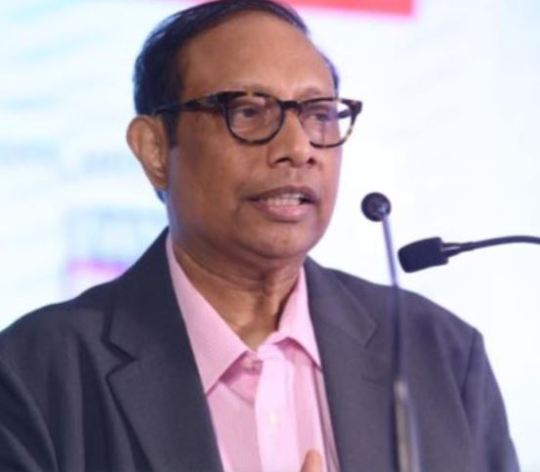
Sethurathnam Ravi, popularly known as S Ravi is the former chairman of Bombay Stock Exchange Limited (BSE).Currently he is the Founder and Managing Partner of Ravi Rajan & Co.,an advisory and accountancy firm, headquartered in New Delhi, India. He is also an Associate Member of Association of Certified Fraud Examiners (CFE), USA, and a registered Insolvency Resolution Professional.
Sethurathnam Ravi (S Ravi) is the former Chairman of Bombay Stock Exchange Limited (BSE) and Founder and Managing Partner of Chartered Accountants’ firm Ravi Rajan & Co., an advisory and accountancy firm, headquartered in New Delhi, India. Sethurathnam Ravi, a chartered accountant by profession, was the former chairman of BSE. He had been and is still continuing to be in board of many prestigious institutions. S Ravi talks on encouraging Emerging & Small Businesses and how they can leverage themselves rightly in the current environment. He shed his light in the current economic environment about his thoughts and how can a young entrepreneur establish his footsteps.
S Ravi explains how be it a start-up or an enterprise of the future, leverage themselves rightly in the current environment where everyone is predicting a super growth for India over the next 5 to 10 years. He talks about what are the regulatory issues they need to deal with, how can to navigate them, how to look after compliance because compliance is taking up their time money and effort and mind space. According to him, most importantly the two issues that one can throw light on placing capital is that you know it’s raining IPOs both in the primary and secondary markets.
Sethurathnam Ravi, the former BSE chairman feels that money is abundantly available and second, is the fact that becoming the technology play, you need to be a technology company whatever business you are doing. Mr. Ravi, with the background experience in advising entrepreneurs companies and even part of the policy making in the country would like to make a quick remark on background of why the next few years are the best years for emerging companies to grow and leverage business environment that exists in India.
The first and foremost factor that is there is the transformation that is from traditional business to the non-traditional business or to the new age business, says the Ex-chairman of BSE. So, this transformation has been happening for the last ten years but it has accelerated over the last five to seven years. And one has seen lot of growth of fintech companies, new banks, seen lot of service providers, there are also a lot of critics’ types of company companies, and the companies which have those successes behind like Paytm. But there should be new companies which are very robust and are coming up in all fields, let it be financial services, manufacturing, robotics or artificially intelligence. So, what worries everybody in this space of the emerging companies and start-up is compliance. For them, the cost of compliance can come down drastically if artificial intelligence and uniform platforms are created for them.
So that is why, Sethurathnam Ravi recommends both the technology with the small emerging companies whether it be any manufacturing, aerospace etc. They can take anything so it has red deed and the cost of compliance will be automated and that is what I think is going to be the next level that the country going to witness. The growth is going to be there because of this and technology has played a very predominant part in it. Manufacturing company with core strength that has to coincide with technology companies to have a robust future says the former BSE chairman.
#SethurathnamRavi#SethurathnamRaviBSE#SethurathnamRaviFmrBSEChairman#SRaviBSE#SRavi#SRaviBSEFmrChairman#SRaviBSEChairman
0 notes
Text
Investment Applications Are Frequently Used To Swindle Small Investors, Affirms Former BSE Chairman, Sethurathnam Ravi
Sethurathnam Ravi (S Ravi) is the former BSE Chairman and founder of Ravi Rajan & Co. In his past career he held the position of Union Finance & Revenue Secretary at India Ministry of Finance. Presently, Mr. Ravi holds the position of Non-Executive Chairman of Tourism Finance Corp. of India Ltd. and Director & Managing Partner at RRCA & Associates. Sethurathnam Ravi shares his views on how to protect yourself from fraudulent app scams.
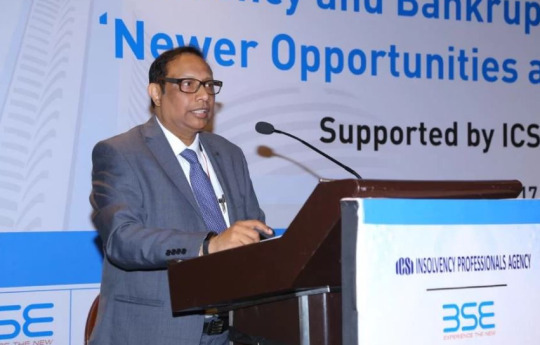
According to Mr. S Ravi BSE, fraud applications have been a menace to many users who have lost money unknowingly. They are fake applications that are mirrors of legitimate applications available on the market. Fraudsters and scammers create applications to induce people to use them. These applications could be similar to popular applications to mislead users who download them on their phones or laptops. It can be a jumble of words that are more or less similar to frequently used applications. However, these applications have one thing in common; they are disguised as genuine applications and are well constructed.
“It is public knowledge that many of these fraudulent apps have also been promoted and advertised on Google networks, Facebook, Instagram, TikTok, etc. As per published information, more than 5 lakh Indians were cheated by using Chinese applications amounting to approximately ₹150 crores. Many investment applications were used to swindle small investors”, Mr. Ravi says.
There are too many cash applications that have witnessed a high percentage of fraud. Cash applications have been chosen carefully as this directly causes financial damage. Such applications are Ultima Keyboard space 3D pro, GT Sports Racing Online, Fitness Ultimate 2o21, Wi-Fi pass code unlock, video mixer editor pro, RT news, UC Browser, Clean It Reface Ultra, live photo animator, ultra-camera HD, water drinker reminder, magic mix, etcetera. Researchers have identified more than 151 applications that, once installed on phones, can carry out fraudulent activities.
Sethurathnam Ravi BSE Chairman also acknowledges that the government of India has taken measures to eradicate cyber-crime. Local police have consistently arrested fraudsters and also investigated promoters of such applications. The government of India banned Chinese applications to protect investors. A comprehensive list of fake applications was circulated to spread awareness, Mr. Ravi concludes.
youtube
#SethurathnamRavi#SethurathnamRaviBSE#SRaviBSE#SRavi#SRaviBSEFmrChairman#SRaviBSEChairman#SethurathnamRaviFmrBSEChairman#Youtube
0 notes
Text
Seathuruthnam Ravi- wrote How Govt Can Ease GST-related Complications To Facilitate Business For MSMEs
The government believed that a streamlined tax system and a single market would increase operational effectiveness, particularly for MSMEs
According to the Ministry of Micro, Small, and Medium Enterprises, there were more than 7.9 million MSMEs in India as of March 27, 2022. These enterprises account for more than 29 per cent of the GDP and 50 per cent of all exports from India. Additionally, MSMEs are responsible for 30 per cent of the country’s manufacturing production. In the 2022 Statistareport, almost 110 million Indians worked in MSMEs in FY16. Urban areas have much higher MSME employment than rural ones. Micro businesses, of all firm sizes, represented the greatest proportion of employment in the country during the studied period.
MSMEs form the backbone of India. To bring more ease to this crucial sector, the Indian government introduced the Goods and Services Tax (GST) Act on March 29, 2017, which became effective on July 1st of that same year. The government believed that a streamlined tax system and a single market would increase operational effectiveness, particularly for MSMEs.

The Benefits of GST
The Benefits of GST Sethurathnamravi write about Business MSMEs
The following are the benefits and future objectives of the GST Act:
The number of indirect taxes has decreased.
Since there are fewer GST compliances, filing your GST return won’t take up a lot of your time.
Complete GST registration can be done online.
After obtaining GST registration, it is simple to conduct interstate business through e-commerce operators.
Through online procedures, the GST has regulated unorganised business sectors.
Once a GSTIN is allotted, it can be used for all GST facets.
GST provides a composition plan to pay taxes at a set rate while lowering the amount owed in taxes and tax rates.
Having fulfilled the compliance, you can easily claim an input tax credit.
Under GST registration, tax avoidance is easy to spot.
The endeavour is to put ever more companies under the GST.
The consumption of goods and services will be encouraged.
GST sets reasonable prices for a product or service.
However, a study done by the Reserve Bank of India (RBI) on GST’s one-year completion shows that the new tax act has unquestionably raised operating expenses for MSMEs. These enterprises find it challenging to separately invest in computer infrastructure and GST-related services from CPAs and tax experts. Despite the fact that GST offers a lot of benefits, MSMEs seem to be taking time to become accustomed to the new tax structure.
As the GST Turns 5, How Are Businesses Faring?
Earlier this year, in 2022, Local Circles reached out to Indian business people, collecting their feedback on the new role of GST in their professional lives. The findings of the survey include:
Compared to pre-GST business taxation, 37% of enterprises are spending more time on GST compliance.
50 per cent of enterprises claim that their monthly accounting costs have risen since the introduction of GST.
75 per cent of enterprises find the matching of invoices for outputs and inputs to be the primary problem with GST.
Only 45 per cent of enterprises are delighted with 5 years of GST, whereas 24 per cent express discontent.
Connection troubles, logging-in delays, and submitting the information are some of the other major issues businesses are facing while on the GSTN website.
Concerns and Recommendations with Respect to GST
Over-MB documents cannot be uploaded to the portal; this limitation has to be extended.
E-invoicing is valid for 24 hours only; either the time restriction should be extended or e-invoices should automatically be emailed to enterprises.
From October 1, 2022, e-invoicing is applicable if the turnover exceeds Rs 10 cr; it should not be so for MSMEs.
GST registration is done online, but physical verification is carried out by state GST departments. As a result, MSMEs must interact with the GST department staff, which might give way for corruption.
It is challenging to determine if a new registration falls under state or central jurisdiction. Regarding their state jurisdiction office details, new registrants or taxpayers often face a lot of misunderstanding.
There are numerous legal and factual disputes; thus, the Income Tax Department needs a separate tribunal.
Petroleum products are still exempt from GST.
How the Indian Government Is Relaxing GST for MSMEs
The Government of India has been taking numerous actions to create a more favourable environment for the growth of MSMEs because it is aware of the enormous contribution of the sector. It has relaxed various MSME-related rules as part of the GST regime. For example, the initial exemption level for commodities, which was Rs. 20 lakhs, has been raised to Rs. 40 lakhs. The annual threshold for the Composition Program was raised to Rs. 50 lakhs for services and Rs. 1.5 crore for commodities. Those dealing in composition are now permitted to offer services.
GST intends to broaden the base of taxpayers, mostly MSMEs, and it might place a burden on them in terms of compliance and the related expenditures. However, in the course of time, GST will make these MSMEs more competitive by creating a level playing field between them and large corporations. Additionally, these Indian MSMEs would be able to compete with overseas rivals from low-cost manufacturing hubs like Bangladesh, China, and the Philippines.
Author:
Sethurathnamravi Ravi
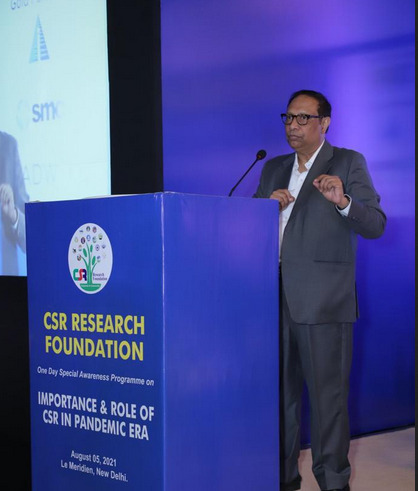
The author is a Former Chairman of BSE, Founder & Managing Partner of Ravi Rajan & Co practising chartered accountant and an independent director on many large public companies whose views and ideas have been instrumental in framing policy
#SethurathnamRavi#SethurathnamRaviBSE#SRaviBSE#SRavi#SRaviBSEFmrChairman#SRaviBSEChairman#SethurathnamRaviFmrBSEChairman
0 notes
Text
S Ravi’s Extensive Experience Across Banks and Financial Institutions Will Foster the Growth of Ebixcash Private Limited
EbixCash Private Limited, a subsidiary of Ebix, Inc. a leading international supplier of On-Demand software and E-commerce services to the insurance, financial, healthcare and e-learning industries appointed S Ravi, the former chairman of BSE as a new independent director to the EbixCash Board.
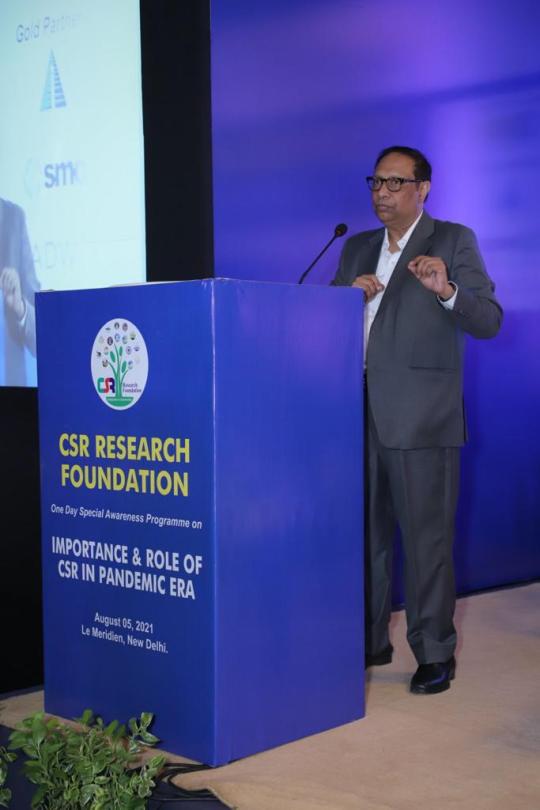
Sethurathnam Ravi, popularly known as S Ravi pursued his Bachelor’s and Master’s degree in Commerce from Madhya Pradesh’s Durgavati University. His academics and talents led him to various job roles in the corporate world where he proved his worth. He was able to secure a place as a fellow member of the Institute of Chartered Accountancy of India. He was a chartered accountant who was based in India along with being the managing and promoter partner of the Ravi Rajan & Co. He was also the honorable former BSE chairman.
Ravi brings extensive experience across banks, financial institutions, insurance companies, the tourism industry, stock exchanges and asset management sectors – having held board positions at leading institutions across these sectors.
S Ravi is presently serving as the Chairman and Director of Tourism Finance Corporation of India Ltd. – the premier government-owned financial Institution, set up to promote tourism in India. He also presently serves on the boards of Aditya Birla Health Insurance Company Ltd., Star Union Dai-ichi Life Insurance Company Ltd., Aditya Birla ARC Ltd., IIFL Asset Management Ltd. And SBI Payment Services Pvt. Ltd. He has served on the boards of over 40 leading institutions in India, including insurance companies, several public sector banks and public sector enterprises such as UCO Bank, Union Bank, Hindustan Aeronautics Ltd., BHEL and SBI – SG Global Securities Services Pvt Ltd. He was also appointed by the Government of India and Reserve Bank of India (RBI) as Chairman of the Technical Experts Committee for Punjab & Sind Bank’s strategic turnaround.
The former BSE chairman S Ravi was nominated as a member of the Takeover Panel of the Security & Exchange Board of India (SEBI), besides serving on its Mutual Fund Advisory Committee. S Ravi has also served on India’s Insurance Regulatory Development Authority (IRDA) as a member of its Insurance Advisory Committee. He is a member of Business World’s Jury for Festival of FinTech 2021 and served as a jury member on the Institute of Chartered Accountants of India team, which selected the Award for Excellence in Financial Reporting for the year 2012-13. S Ravi the former BSE chairman said, “EbixCash has built a global presence today with clients in 44 countries and a leading presence in India in multiple financial technology segments. EbixCash has also become a bellwether in the remittance, foreign exchange and money transaction space. I am extremely glad to join the board of Ebixcash and to be a part of their journey in India.”
MR S Ravi is the Founder and Managing Partner of Ravi Rajan & Co. LLP, a chartered accountancy firm specializing in Forensic Audits, Audits & Assurance, Insolvency Assignments and Turn around Strategies, Valuations and Regulatory Compliance Advisory.
0 notes
Text
‘Startups will have to prove their tenacity to be successful’: says Former BSE Chairman, S Ravi
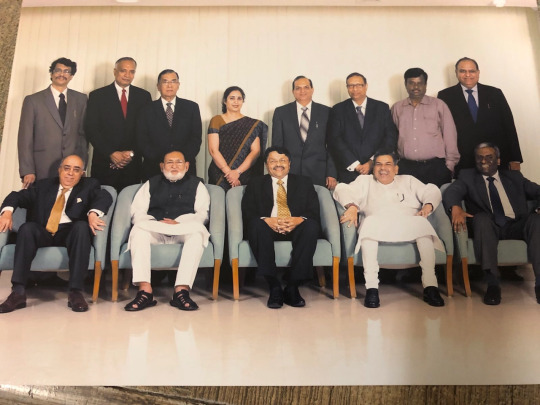
Mr. Sethurathnam Ravi (S Ravi) is the former Chairman of Bombay Stock Exchange Limited (BSE) and Founder and Managing Partner of Chartered Accountants’ firm Ravi Rajan & Co., an advisory and accountancy firm, headquartered in New Delhi, India. Mr. S Ravi is a Post Graduate in Commerce and holds a diploma in Information System Audit (DISA). He is an Associate Member of Association of Certified Fraud Examiners (CFE), USA and is also registered as an Insolvency Resolution Professional.
S Ravi, former chairman of BSE and Founder of accountancy firm Ravi Rajan & Co, speaks about the pandemic, its impact on the market, and the way ahead for crypto markets and start-ups eyeing IPOs.
Mr. Sethurathnam Ravi identifies the impact of the pandemic on the financial sector. Banks are witnessing request for restructuring, especially in the SME/ MSME sector. Sectors badly infected are aviation, tourism, manufacturing, hospitality, malls etc. “Banks are doing long and deep restructuring. Insurance companies are flooded with claims. Fintech companies have done well during this pandemic”, S Ravi underlines.
The former BSE Chairman was delighted that the stock markets were not impacted by the pandemic in the way it was expected. Retail investors flocked the stock market and showed unprecedented interest. But certain other sectors were badly impacted which is a cause of concern for Indian economy. The cost of petrol also impacted the economy. Manufacturing suffered by 30 percent during the second wave. Job losses or salary cuts were witnessed across the industry. “The economy had been impacted and there has been a resultant fall in GDP”, acknowledges Mr. Ravi.
Talking about the crypto markets, S Ravi observed, “Cryptocurrency has a good future, but it is risky due to lack of regulations. The present environment is not conducive to crypto trade as there are no regulations and investor awareness. Regulations are important to develop the crypto market so that there is no misspelling and there is protection of small investors. At present, we are slow on framing regulations.”
Technology has actually enabled business to continue without much disruption. It has enabled work from home and has reflected its importance. “A lot of companies are planning their IPO. Making use of the technology, start-ups will have to prove their mettle and catch the fancy of the market to be successful. Tech and companies with innovation will perform well in the proposed IPOs”, former BSE Chairman, S Ravi concluded.
0 notes
Text
Some of the Tools to Consider to Facilitate Different Investments by S Ravi Fmr BSE Chairman
Sethurathnam Ravi (S Ravi) is a chartered accountant (CA) based in India, promoter and managing partner of Ravi Rajan & Co and the former Chairman of Bombay Stock Exchange (BSE). He also serves as an Independent Director of Tourism Finance Corporation of India. In 2019, Ravi also joined SBI Payments Services Pvt. Ltd as one of the Board Directors. Before joining BSE, Ravi served on boards of various companies such as, UTI Company Pvt Ltd., SMERA Ratings, SBI-SG Global Securities, STCI Finance, and BOI Merchant Bankers. He also serves as a member of SEBI’s takeover panel and Institute of Chartered Accountants of India.
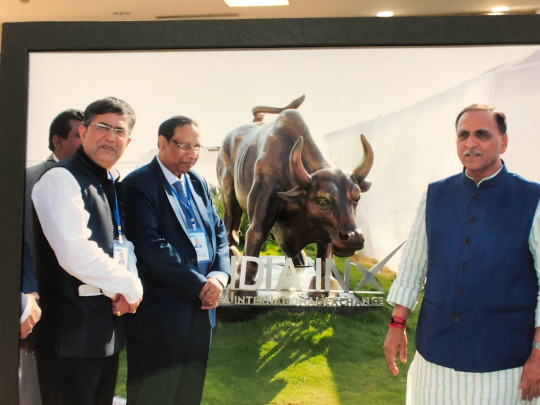
Sethurathnam Ravi, former BSE chairman, shares some tips for smart investing to reduce investment risk.
Sethurathnam Ravi (S Ravi) is a chartered accountant (CA) based in India, promoter and managing partner of Ravi Rajan & Co, a consultancy and accountancy firm based in New Delhi, India and the former Chairman of Bombay Stock Exchange (BSE) (November 2017 to February 2019).
Mr. S. Ravi holds a Master’s Degree in Commerce and a Diploma in Information Systems Audit (DIS). He is an Associate Member of the Association of Certified Fraud Examiners (CFE), USA, and is registered as an Insolvency Resolution Professional. In this article Mr. s Ravi sheds light into smart investing tips to reduce risk.
An individual's investment needs are driven by a variety of goals and objectives that are different from self / child education, child marriage, retirement needs, creating a fund for down payment for a home purchase, travel fund, and emergency fund.
Based on the needs and objectives of the investment, individuals evaluate their risk tolerance detail, time to achieve goals, and the ability to replace capital erosion. Investment decisions are guided by the traditional investment principle of risk-return trade-off, which is related to high risk with high return.
According to S Ravi, the current markets offer a variety of investment products for investment needs such as fixed deposits, debt securities, equities, debt, equity or hybrid, SIPs, equities or hybrids, SIPs, ETFs, gold, real estate and currency. There are different types of risks associated with them, some of which are manageable and some of which are not. Market risk is the fluctuation of revenue due to macroeconomic factors and the political risks posed by changes in uncontrolled government policy changes.
Former BSE Chairman S Ravi also talks about price risk, which is the fall in the value of investment instruments, the loss of capital and the risk of inflation damaging purchasing power. There are risks associated with interest rate fluctuations, default risk (from which the loan interest has not been repaid since), risk of fluctuations, i.e., daily / frequent fluctuations in prices, and concentration risk due to investment. The theme of a single type / sector / asset, including currency risk in terms of a portfolio of investments, includes investing in foreign markets / forex instruments.
S Ravi also provides certain tools that an individual may have, which should be considered to mitigate the various investment risks involved. Such as:
1. Due diligence:
Due diligence is an investigation, audit, or review performed to confirm facts or details of a matter under consideration. In the financial world, due diligence requires an examination of financial records before entering into a proposed transaction with another party.
It is essential to do research before making an investment, says S Ravi. For example, before investing in a stock, it is important to examine the revenue growth, PE ratio, debt load and management team and then compare them with other stocks in the same industry in key parameters. Stocks with high PE ratio, unstable management, unstable profitability and revenue growth can be eliminated.
2. Capital allocation:
Deposit funds into different categories of debt, equity or a combination of both, depending on the growth requirement of the capital, of the total capital available for investment. If a person starts investing at an early age, investing in equities that offer high returns on long-term investments will reduce the risk of instability and inflation. Debt instruments, such as bonds, on the other hand, have higher inflation risk over time and are subject to interest rate fluctuations.
3. Portfolio diversification:
It includes a selection of different investment products, exposure to equity from different sectors, and a mix of different options available for equipment. As a strategy, the potential for low returns may be minimized, but the risk of significant capital loss is mitigated.
4. Monitoring portfolio:
This is essential at regular intervals. For example, during periods of low interest rates, the price of debt securities may rise and the portfolio may change. If an individual is unable to control oversight, it is a good idea to switch to mutual funds to save capital.
Currency risk needs to be assessed, i.e., in the case of IT and pharma sectors, opportunities arise when the rupee weakens, while in the case of Capital Goods & Power sector, strong rupee improves investment opportunities.
5. Blue chip stocks:
To mitigate capital losses and avoid liquidity risk, it is best to continue investing in belvetere stock or funds. Investors should pay attention to the credit rating of debt securities and invest in securities with better ratings to avoid default risk.
Mr. S Ravi BSE also states that the amount of money invested, the duration of the investment, the income, growth, associated expenses and risk tolerance influence the achievement of investment objectives. All types of investment products / securities carry some other risks. Before deciding on any investment, one should consider the risk appetite which is determined on the basis of wealth / net worth and risk capital at hand. Investment decisions should be made so as not to jeopardize the lifestyle.
#SRaviBse#SethurathnamRavi#SethurathnamRaviBse#SRaviBseChairman#SethurathnamBse#SethurathnamChairman#SethurathnamBseChairman
0 notes
Text
S Ravi Thinks that Customers Have Seen that the Government has Pumped in a Lot of Money into the Banks
Sethurathnam Ravi (S Ravi) is the former BSE Limited Chairman and Founder and Managing Partner of Chartered Accountants’ firm Ravi Rajan & Co., an advisory and accountancy firm, headquartered in New Delhi, India. In his tenure spanning more than three decades, S Ravi has gained extensive experience in the field of banking and finance, financial and management consulting; including mergers and acquisitions, valuations, rehabilitation & restructuring of companies and turnaround strategies, auditing of companies and banks among others.
When public sector banks merged including the Punjab National Bank, nearly every individual was worried about his savings and even fixed deposits with the public sector banks. As per the former BSE Chairman, these mergers come with a huge impact on the fixed deposit holders, savings account holders, employees, shareholders, borrowers, and the public.
To Know More: https://www.hindustantimes.com/business-news/bse-appoints-s-ravi-as-its-new-chairman/story-lqrA6vcJn9oUvVQmm891kL.html
#SRaviBse#SethurathnamRavi#SethurathnamRaviBse#SRaviBseChairman#SethurathnamBse#SethurathnamChairman#SethurathnamBseChairman
0 notes